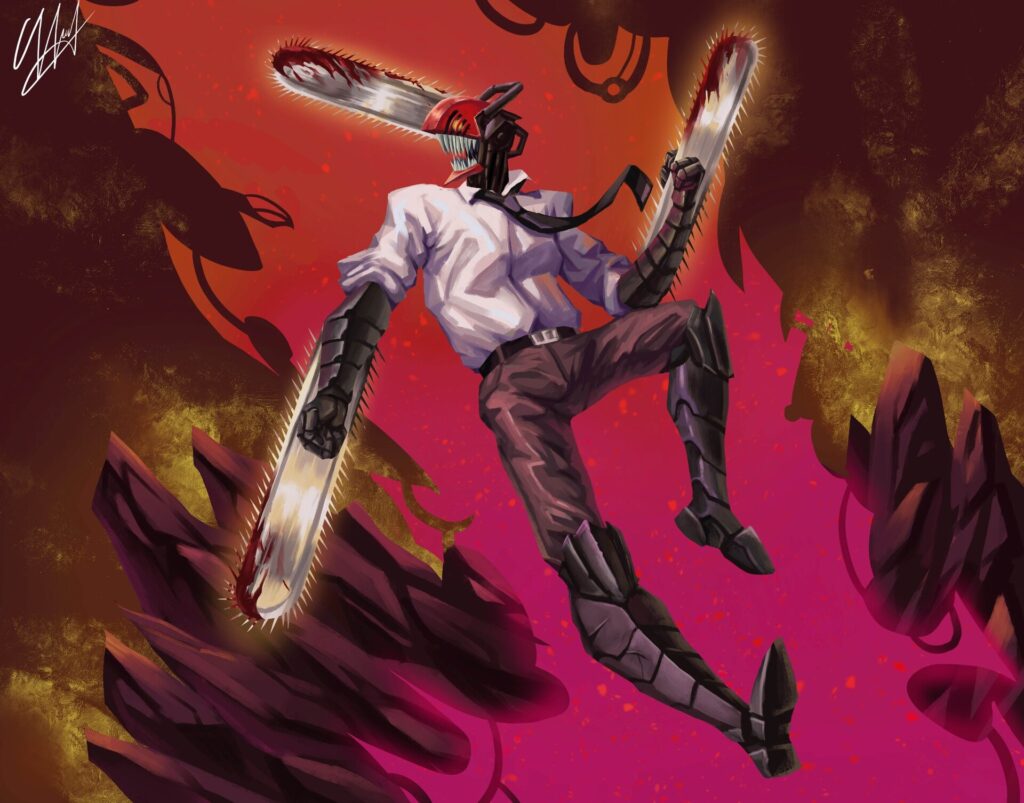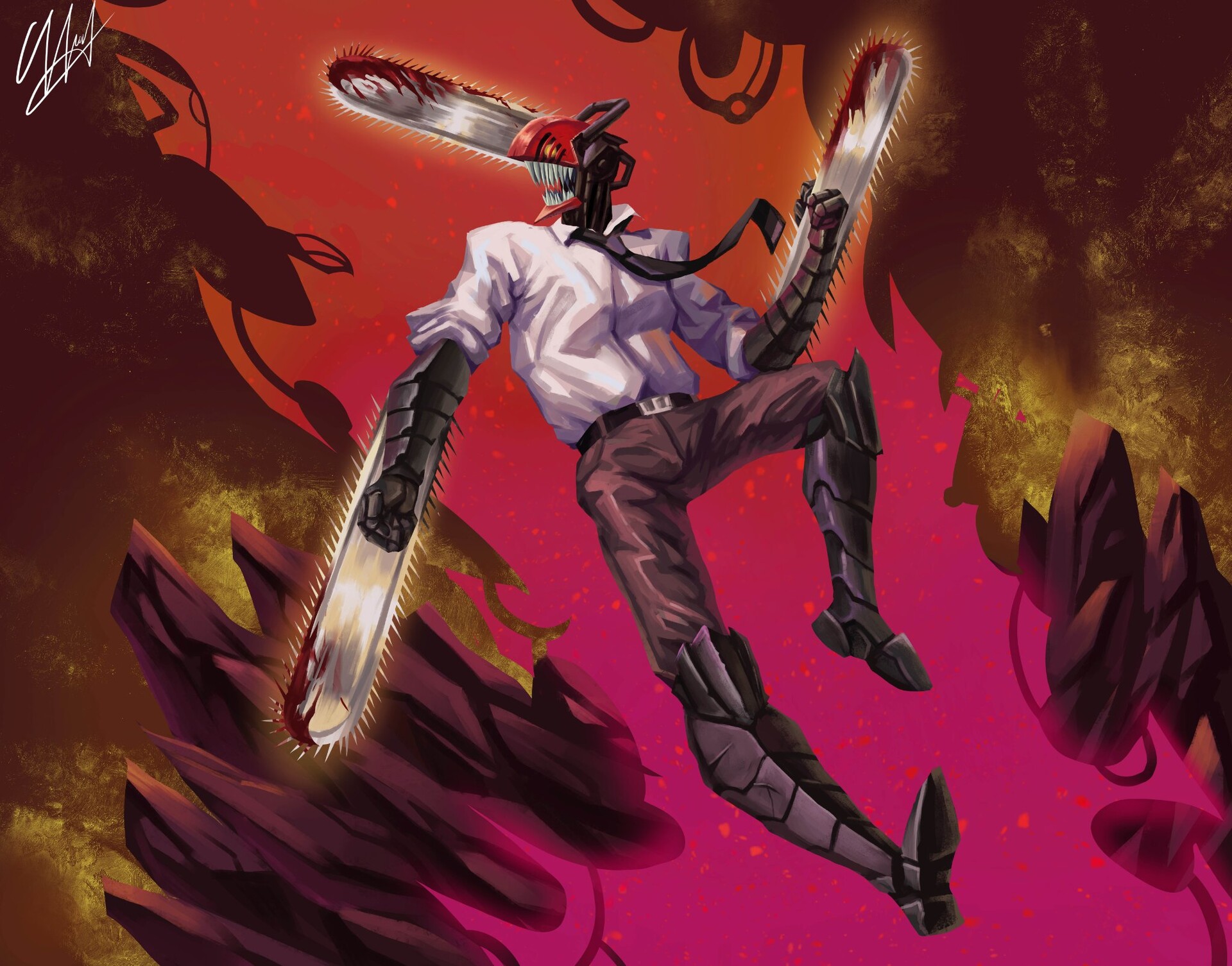
The Unlikely Mentors of Chainsaw Man: Power, Aki, and Kishibe’s Influence
Chainsaw Man, the hit manga and anime series, is known for its brutal action, dark humor, and surprisingly deep characters. While Denji, the titular Chainsaw Man, possesses immense power, his journey is shaped not just by his abilities but by the individuals who guide him – his unlikely mentors. This article explores the crucial roles played by Power, Aki Hayakawa, and Kishibe in Denji’s development, examining how their diverse influences molded him into the complex character he becomes.
Aki Hayakawa: The Responsible Older Brother
Aki Hayakawa, a Public Safety Devil Hunter, initially appears as Denji’s opposite. He is serious, disciplined, and driven by a desire for revenge against the Gun Devil. He embodies responsibility and maturity, qualities Denji sorely lacks. Aki’s role as Denji’s supervisor forces him to act as a surrogate older brother. He provides Denji with a roof over his head, food, and a purpose, something Denji had never experienced before joining Public Safety.
Aki’s influence is subtle but profound. He instills in Denji a sense of duty and the importance of protecting others. While Denji’s primary motivation often revolves around basic desires, Aki’s dedication to his work and his comrades slowly begins to rub off on him. Aki teaches Denji the harsh realities of their world, showing him the consequences of their actions and the sacrifices required to fight devils. However, Aki’s own internal struggles and eventual tragic fate also serve as a cautionary tale for Denji. [See also: Chainsaw Man: The Significance of Contracts]
The Burden of Responsibility
Aki’s contract with the Curse Devil and the Future Devil highlights the burdens he carries. He’s constantly fighting against fate, trying to protect those he cares about, even at the cost of his own well-being. This selflessness, though ultimately leading to his downfall, leaves a lasting impression on Denji. Denji witnesses the toll that relentless pursuit of revenge can take, and it influences his later decisions.
Power: The Chaotic Partner-in-Crime
Power, the Blood Fiend, is arguably Denji’s closest friend and confidante. While she is selfish, boastful, and often causes chaos, Power’s genuine affection for Denji is undeniable. She provides a stark contrast to Aki’s stoicism and responsibility. Power represents Denji’s more impulsive and hedonistic side. Their dynamic is characterized by constant bickering and childish antics, but beneath the surface lies a deep bond of mutual understanding and support.
Power teaches Denji the importance of friendship and loyalty. Despite her self-centered nature, she consistently puts herself on the line for Denji. She also encourages him to embrace his desires and live life to the fullest. Power’s influence allows Denji to retain his humanity amidst the horrors of their world. The Chainsaw Man’s journey wouldn’t be the same without her. [See also: Power’s Redemption Arc in Chainsaw Man]
The Value of Unconditional Support
Power’s unwavering support, even when Denji is at his lowest, is a crucial factor in his growth. She accepts him for who he is, flaws and all. This acceptance allows Denji to be more open and vulnerable, ultimately helping him to confront his own internal struggles. Power’s death is a pivotal moment for Denji, solidifying his resolve and fueling his determination to protect others. Her impact on Denji is immeasurable, proving that even the most chaotic individuals can have a profound influence.
Kishibe: The Cynical Master
Kishibe, the strongest Devil Hunter in the world, is Denji’s most unconventional mentor. He is cynical, ruthless, and seemingly devoid of emotions. Kishibe’s training is brutal and unforgiving, pushing Denji to his physical and mental limits. He teaches Denji the importance of strategy, deception, and understanding the true nature of devils. Kishibe’s methods are harsh, but his goal is to prepare Denji for the unimaginable horrors he will face.
Kishibe’s influence is about survival. He strips away Denji’s naive idealism and forces him to confront the brutal realities of their world. He teaches Denji to rely on his instincts and to think critically in life-or-death situations. While Kishibe may not offer emotional support, his guidance is invaluable in ensuring Denji’s survival. The Chainsaw Man learns to be a true fighter under Kishibe’s tutelage. [See also: The Philosophy of Kishibe: A Devil Hunter’s Code]
The Harsh Truths of the Devil Hunting World
Kishibe’s cynicism stems from his vast experience fighting devils. He has witnessed countless horrors and lost many comrades. He understands the futility of fighting devils based on emotions alone. Kishibe imparts this knowledge to Denji, teaching him to detach himself from his feelings and to focus on the task at hand. This detachment, while seemingly cold, is a necessary survival mechanism in their world. Kishibe’s lessons, though difficult to swallow, are essential for Denji’s growth as a Devil Hunter and, ultimately, as a person.
The Synthesis of Mentorship
The combined influence of Aki, Power, and Kishibe creates a well-rounded individual out of Denji. Aki provides him with a sense of responsibility and duty, Power teaches him the importance of friendship and loyalty, and Kishibe equips him with the skills and knowledge necessary to survive in a brutal world. These three unlikely mentors, despite their vastly different personalities and approaches, each play a crucial role in shaping Denji’s character and guiding him on his journey as the Chainsaw Man.
The Chainsaw Man’s story is not just about fighting devils; it’s about the power of human connection and the transformative impact of mentorship. Denji’s journey is a testament to the fact that even the most unlikely individuals can have a profound influence on our lives, shaping us into the people we are meant to be. The diverse influences of Aki, Power, and Kishibe are all key to understanding the Chainsaw Man’s complex character and his eventual destiny. Denji’s continued development is a direct result of their guidance, making them integral to the series’ core themes and narrative.
Ultimately, Denji’s growth is a reflection of the lessons he learns from his mentors. He navigates the treacherous world of devil hunting, armed with the knowledge and emotional support he gained along the way. The Chainsaw Man becomes more than just a weapon; he becomes a symbol of resilience, friendship, and the enduring power of the human spirit. The Chainsaw Man continues his fight, carrying the legacy of his mentors with him.

